
Anticipation
Cue Carly Simon (but hold the ketchup). The sound track works for tired neighbors emerging from hibernation, dazed parents pushing dusty strollers over nagging piles of dirty snow, cyclists and runners weaving around pond-size puddles.
"I love this time of year" my wife of 30 years confided. Really? It's still kind of nasty-looking out there. "No bugs or beastly humidity, just chirping birds and an earthy aroma that smells like rebirth. In 2 weeks trees will be freckled with lime-green buds" she sighed.
Yes, Minnesota was somehow able to shrug off the polar vortex and the coldest 4 month winter season in 78 years. A reluctant spring hits the fast-forward button this week; at least 4 days at or above 60F. Above average temperatures for a change?
If you're lucky enough to be down at Target Field for the Twins Home Opener today expect 50s with a few spotty rain showers. By Wednesday a stiff southwest breeze lures the mercury near 70F. By then most of the slush will be gone; the sun's ample energy going into heating up the air instead of melting snow.
Thundershowers may pop Saturday before a temperature relapse early next week. Don't pack away the heavy jackets just yet OK?

Honeymoon, Then Relapse. A fine, mostly-springlike week is shaping up for the Twin Cities and all of Minnesota. ECMWF guidance shows the warmest days coming Wednesday, again Saturday, although I'm not yet convinced we'll see 70F with numerous showers and even a few T-showers in the area early in the weekend. Soak up the warmth because a colder front is brewing for next week. Graphic: Weatherspark.
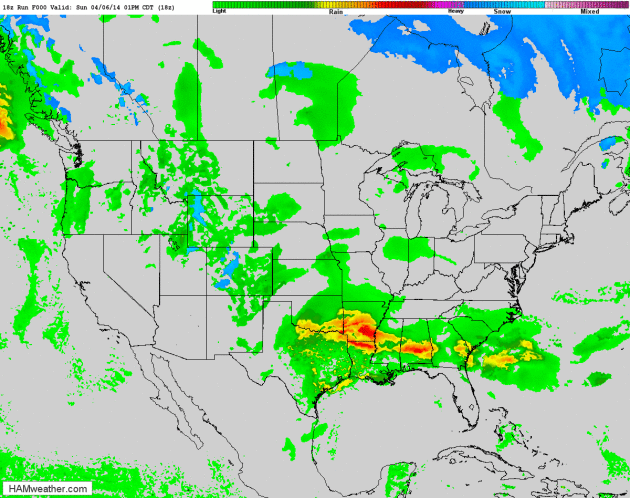
Stormy Detour. NAM guidance into Thursday (Future Radar product) shows heavy showers and T-storms pushing across the Deep South into the Eastern Seaboard over the next 36 hours; a few PM instability showers for Minnesota later today. A more organized band of showers arrives Thursday ahead of a puff of slightly cooler air. NOAA guidance: Ham Weather.
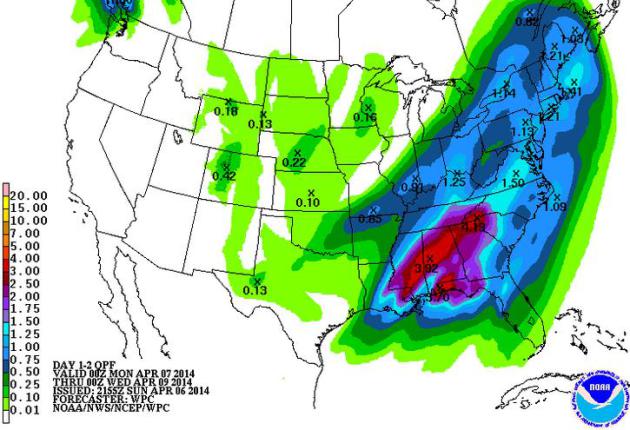
48 Hour Rainfall. I'm just relieved not to be visually assaulting you with a snowfall map. That's progress right? Some 2-4" rainfall amounts will spark sporadic flash flooding from near New Orleans to Huntsville and Atlanta, rain spreading up the east coast by Tuesday before drying out. Map: NOAA.
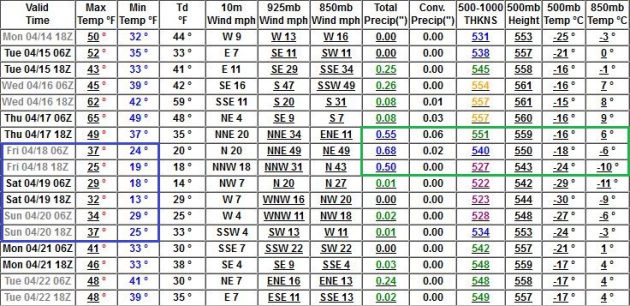
Feeling Lucky? I'm not either, not after the winter we just muddled through. GFS guidance is hinting at rain ending as a period of wet snow late next week. It's early, much can change - with any luck much WILL change and this scenario won't materialize. But 850 mb temperatures may be cold enough for snow between April 18-20. Something to definitely look forward to.
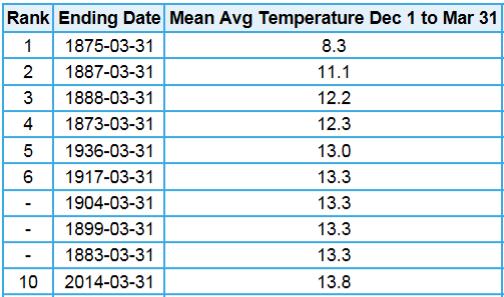
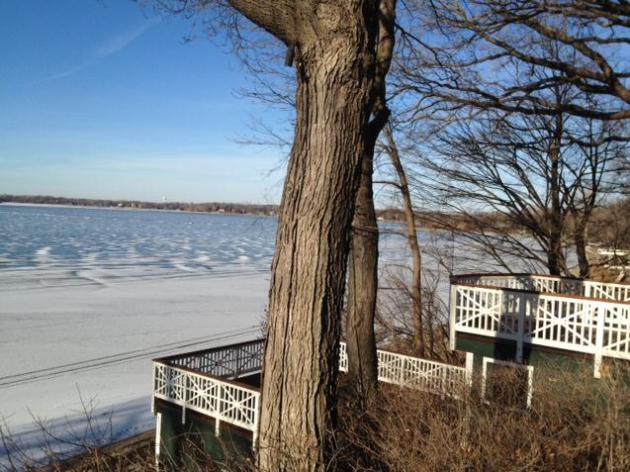
Climate Stories...
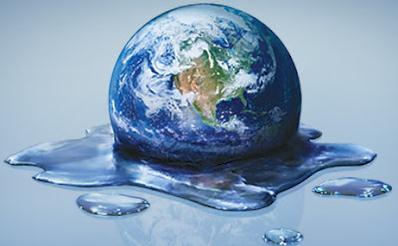
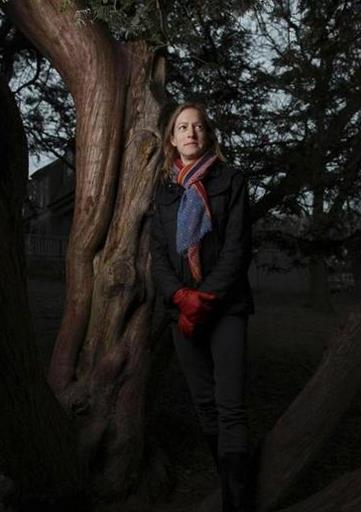
Photo credit above: Essdras M. Suarez/Globe Staff. "Kelsey Wirth has concluded that the big environmental groups have for whatever reason largely failed to engage the masses. Mothers — who vote, who purchase, who network — could be the ones to change that."

* Climate researcher Stephan Lewandowsky has more information on his recent paper, rejected due to potential legal threats from climate deniers apparently upset to be scientifically connected to conspiracy ideation. Read his latest thoughts and updates in a recent update, "Revisiting a Retraction" at shapingtomorrowsworld.org.
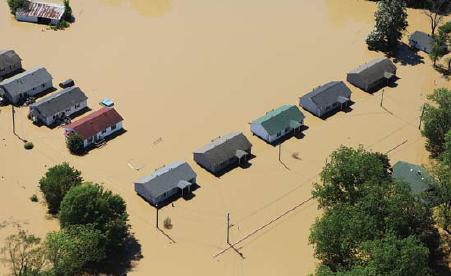
Our Year Of Extremes: Did Climate Change Just Hit Home?
If you didn't watch Ann Curry's (excellent) hourlong documentary on
climate change Sunday evening you can get an overview and a few video
clips on the web. Here's an excerpt: "...Changing
your light bulb is not going to make a big difference. We need to go
after the big sources of energy," he said. According to scientists, a
huge volume of greenhouse gases is trapped under permafrost — frozen
soil that spans large areas of the Northern hemisphere, at a thickness
of up to one mile in places — and that permafrost is showing signs of
thawing. If the trapped greenhouse gases escape, Box says there could be
severe consequences — something he calls the "doomsday scenario."
"That's climate catastrophe. Runaway climate heating," he said. "That
would ravage agricultural systems. We cant feed people, mass starvation,
famine, breakdown of civilization...."
File photo credit: David Fine, FEMA.
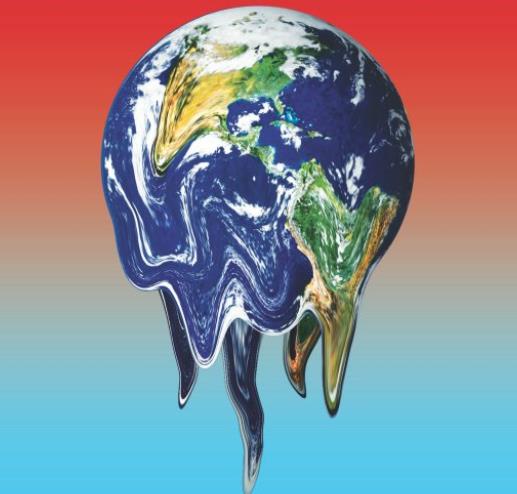

Climate Meeting To Discuss Future Of Fossil Fuels.
Will it be business as usual for the fossil fuel industry, in spite of
the changes we're witnessing worldwide? After all, they're only giving
us what we want and need, right? A tough problem to crack, but I'm still
convinced the marketplace (not government) can make renewables more
cost-effective, scaling up with home-grown energy sources from the sun
and the wind. It's already happening, the question is how fast prices
fall and whether our aging grid needs to be replaced by smaller "smart
grids" able to localize energy production and consumption. Here's an
excerpt from AP and ABC News: "...A
leaked draft of the report sent to governments in December suggests
that in order to keep global temperature increases below 2 degrees
Celsius (3.6 F) by the end of the century — the stated goal of
international climate talks — emissions need to fall by 40-70 percent by
2050. Investments in fossil fuels such as oil and coal would have to
drop by $30 billion a year, while spending on renewables would have to
go up by $147 billion annually, according to the draft. That message is
likely to face opposition from the fossil fuel industry and countries
that depend on it..."

Climate Change Is A Game Of Risk.
You'll be hearing more about a more volatile climate in the context of
risk management in the years ahead. Here's an excerpt of a very good
explanation from Time Magazine: "...Risk—you’ll
be hearing that word a lot in the context of climate change. That’s
because the best way of thinking about the impact of global warming—and
especially the economic impact—is as a risk factor. As the climate
warms, sea level will rise, which puts coastal communities—from tens of
millions of poor people in Bangladesh to ultra-wealthy Manhattanites—at
greater risk of flooding. Warming may also intensify tropical weather,
potentially increasing the risk of catastrophic storms like Katrina. If
climate change cuts into the yield of crops like wheat or corn—as the
latest IPCC report predicts—that could raise the risk of violent
conflict in already impoverished countries. Climate change is a risk
multiplier..."
Image above: vegas.com.

* The paper "Recursive Fury" that's causing such a furor among climate denialists is here, courtesy of the University of Western Australia.